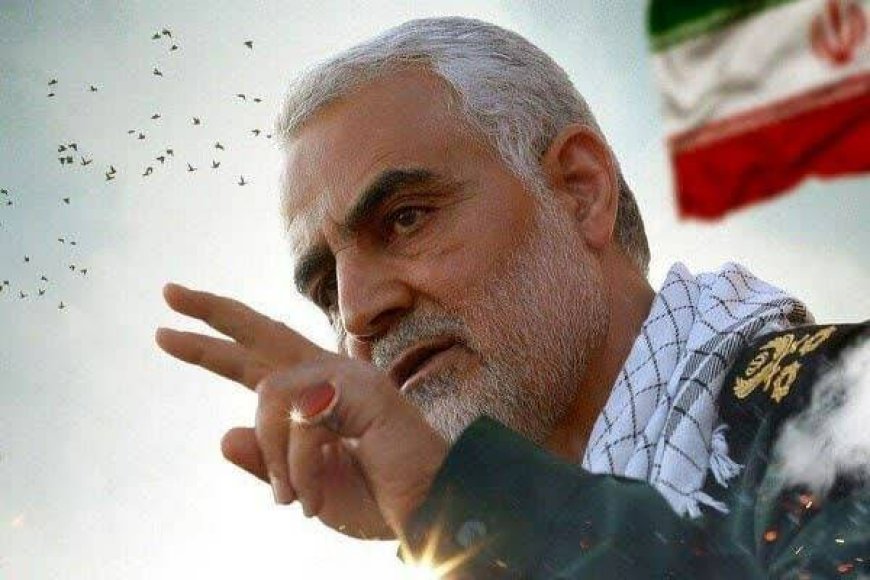Four Years On: The Unresolved Case of Martyr Soleimani's Assassination
In the realm of international relations, few crimes are as reprehensible as terrorism. Across legal systems worldwide, the prosecution and punishment of terrorism are widely supported, and the pursuit of justice in cases involving terrorism is considered not only permissible but imperative.

Four years have passed since the assassination of Haj Qasem Soleimani and his comrades, yet this case remains open and under investigation. Lieutenant General Martyr Qasem Soleimani, the late commander of the Quds Force of the Islamic Revolutionary Guard Corps (IRGC), was tragically assassinated by the American government near Baghdad's airport in the early hours of January 3, 2020.
The accused parties in the assassination of Martyr Soleimani span three countries within the Middle East and three countries outside the region. The United States, unequivocally, stands as the main culprit in this terrorist crime. To date, over 127 defendants have been identified, with 74 of them being American citizens. Arrest warrants have been issued for more than 40 defendants, and legal representation has been sought from nine countries for further investigation.
The primary charges in this case are directed towards Donald Trump, the US president at the time, and other officials of the American government, as stated by Iranian judicial authorities.
The role of the then-Iraqi government in the assassination of Martyr Soleimani has also come under scrutiny. During the previous Iraqi administration led by Mustafa Al-Kadhimi, there were indications of a cover-up concerning this heinous crime. Some evidence suggests that officials within the Al-Kadhimi government engaged in procrastination and concealment of pertinent evidence.
It is imperative to highlight that Al-Kadhimi failed to provide satisfactory answers to questions related to the assassination of General Soleimani, raising suspicions of collusion with the Americans. Hence, Iraq bears a responsibility to diligently pursue justice in the case of the assassination of resistance commanders.
While the Islamic Republic of Iran has made considerable efforts and taken necessary measures to follow up on the assassination case of Martyr Soleimani, it is regrettable that the Iraqi government has made limited progress in this regard. It is crucial to distinguish between the efforts made by the Iraqi people and those of official Iraqi government pursuits.
Recent activities by Iraqi citizens, including 72 lawyers and political activists, along with the brother of Haj Abu Mahdi al-Muhandis, filing a lawsuit against former US President Donald Trump and other officials in Iraqi courts, reflect the determination of the Iraqi people.
In contrast, the previous Iraqi administration led by Al-Kadhimi displayed a significant lack of commitment to pursuing justice, potentially influenced by political considerations and its relationship with the White House. Al-Kadhimi himself was among the key defendants implicated in the case, further contributing to the negligence observed by his administration.
As the current administration in Iraq has yet to take substantial action regarding the assassination of Martyr Soleimani, it appears that the United States continues to exert pressure on Iraq, wielding tools capable of manipulating the government in Baghdad and compelling its compliance. Economic leverage has been one such tool, as demonstrated by the American-induced economic crisis in Iraq through the manipulation of the dollar's price. This tactic may serve as a means to hinder the Iraqi government's handling of cases involving the assassination of resistance leaders.
In conclusion, the pursuit of justice in the case of Martyr Soleimani's assassination remains a pressing issue of international importance. The involvement of multiple countries, including the United States, and the complexities surrounding Iraq's role necessitate a comprehensive and unwavering commitment to uncovering the truth. It is imperative that the international community, alongside Iraq, join forces to ensure accountability and prevent impunity for such acts of terrorism. Only through a collective pursuit of justice can we uphold the principles of international law and safeguard the values we hold dear.













































